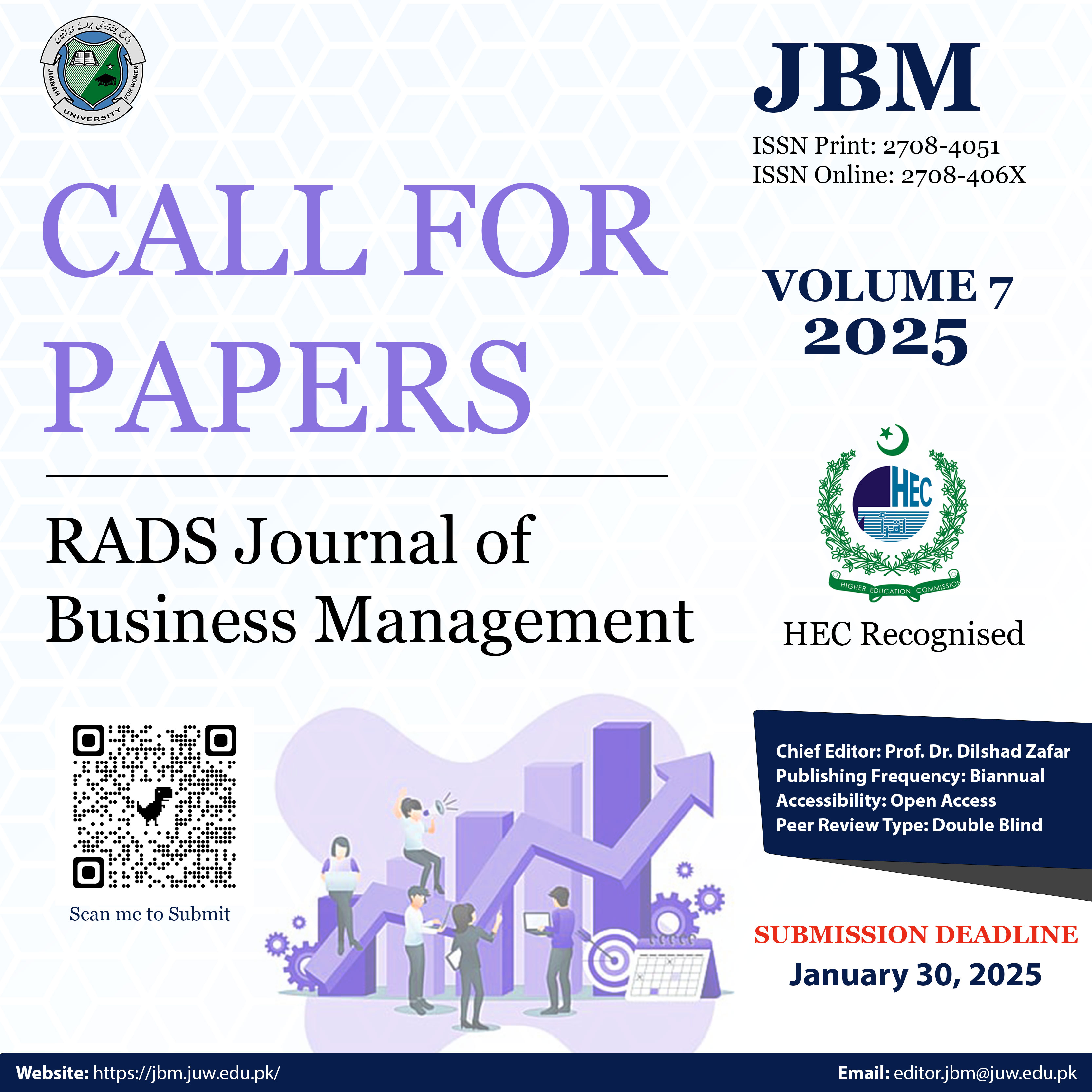Effect of Preferential Treatments on Employee Turnover Intention
Abstract
The study was conducted to examine the effect of preferential treatment, nepotism, favoritism, cronyism on the turnover intentions of employees working in pharmaceutical companies in Peshawar. Currently, there are 26 pharmaceutical firms in Peshawar, but for convenience, only 6 firms operating in Hayatabad have been selected as the study population. The study used the self-governing questionnaire method to collect data from employees. Predetermined questionnaires have been used for data collection. The findings of the study suggested that nepotism had a positive and significant effect on the employee's turnover intention, that favoritism also had a positive and significant effect on the employee's turnover intention, and that cronyism had a positive and significant effect on the employee's turnover intention. Nepotism has also been positively linked to the turnover of employees, and it is recommended that the management should not consider their families in the selection or promotion of their work so that employees may not feel injustice and undue favor in the organization.
The author retains the copyright and grants the right of first publication to the journal.





